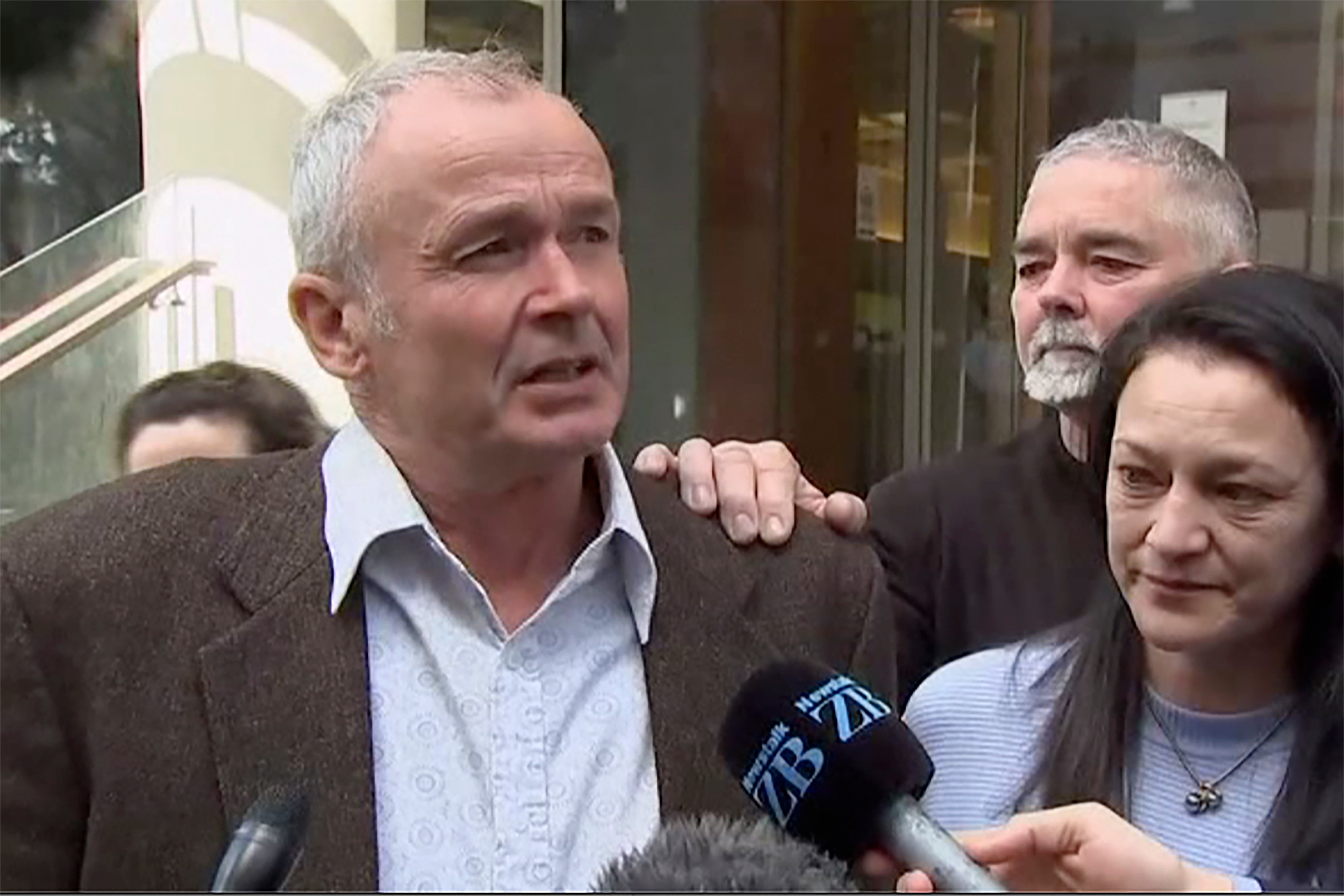New Zealand man's convictions overturned 3 years after death
New Zealand’s Supreme Court has taken the unusual step of overturning a man’s convictions even though he died three years ago

Your support helps us to tell the story
From reproductive rights to climate change to Big Tech, The Independent is on the ground when the story is developing. Whether it's investigating the financials of Elon Musk's pro-Trump PAC or producing our latest documentary, 'The A Word', which shines a light on the American women fighting for reproductive rights, we know how important it is to parse out the facts from the messaging.
At such a critical moment in US history, we need reporters on the ground. Your donation allows us to keep sending journalists to speak to both sides of the story.
The Independent is trusted by Americans across the entire political spectrum. And unlike many other quality news outlets, we choose not to lock Americans out of our reporting and analysis with paywalls. We believe quality journalism should be available to everyone, paid for by those who can afford it.
Your support makes all the difference.New Zealand’s Supreme Court on Friday took the unusual step of overturning a man’s convictions even though he died three years ago.
The court found there had been a substantial miscarriage of justice after Peter Ellis was convicted of sexually abusing children at the daycare center where he worked as a teacher more than 30 years ago.
Usually appeals end once a complainant dies. But in this case, the court found it was in the interests of justice for the appeal to continue even after Ellis died from cancer in 2019 at age 61.
When Ellis was first put on trial in 1993, it was against a global backdrop of concern about satanic ritual abuse.
The case against him relied on the recollections of very young children, and many questioned its merits from the outset. Some believed the fact he was openly gay worked against him.
Ellis was convicted in 1993 on 16 counts of sexual abuse against seven children who attended the Christchurch daycare center. He spent seven years in prison and always maintained his innocence.
The Supreme Court found the evidence of prosecution witness Karen Zelas, a psychiatrist who supervised the interviews of the children, lacked balance and suffered from circular reasoning.
The court found Zelas failed to inform the jury of other possible explanations for behaviors among the children that ranged from bedwetting and sleeping problems to sexualized behavior.
The court also found Zelas hadn't fully explained the risk that the children's evidence had been contaminated, for instance by their parents, who had met with each other before the trial.
Ellis' brother, Mark Ellis, told reporters that the decision had been a long time coming.
“I wish my brother was here, because it was really what he deserved,” he said.
However, the parents of some of the children Ellis was accused of abusing said they were “shocked and saddened” by the decision and that the court had favored a criminal over the victims.
One unusual argument made by Ellis' lawyers was that under Indigenous Māori customs and values, a person's “mana” — their prestige and stature — continues after they die. Ellis himself wasn't Māori but the court accepted the argument could apply to any New Zealander.
While the argument didn't end up being a decisive factor, the court found it supported and strengthened its conclusion that the appeal should continue after Ellis' death.